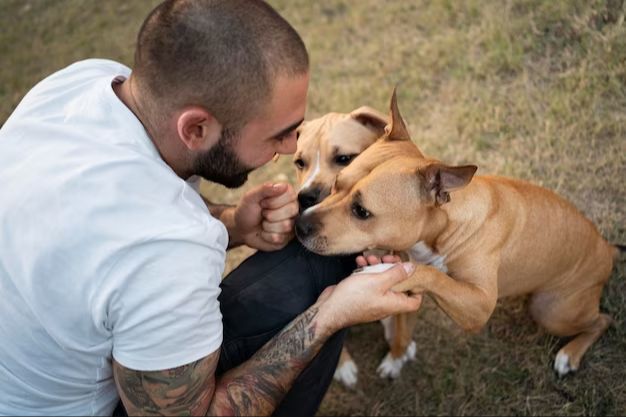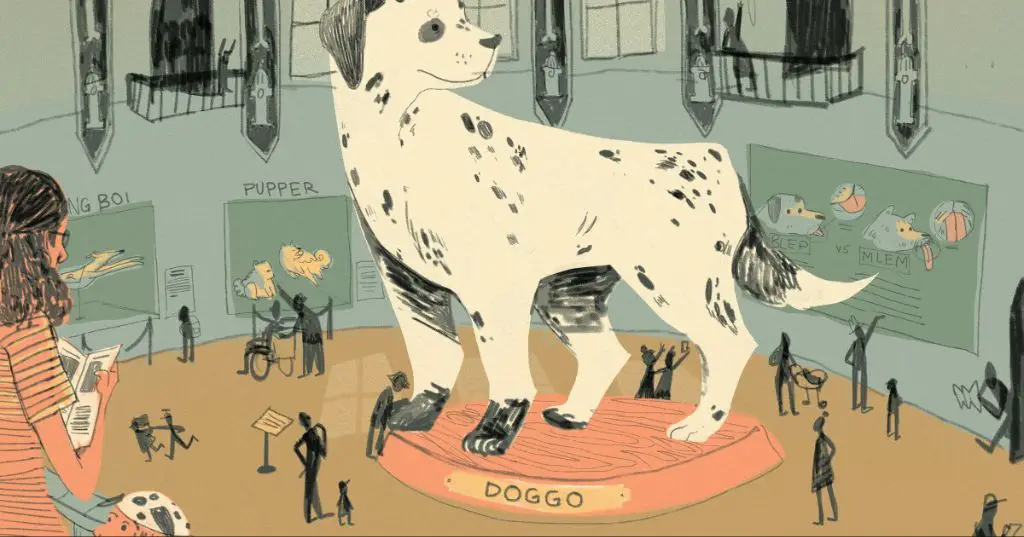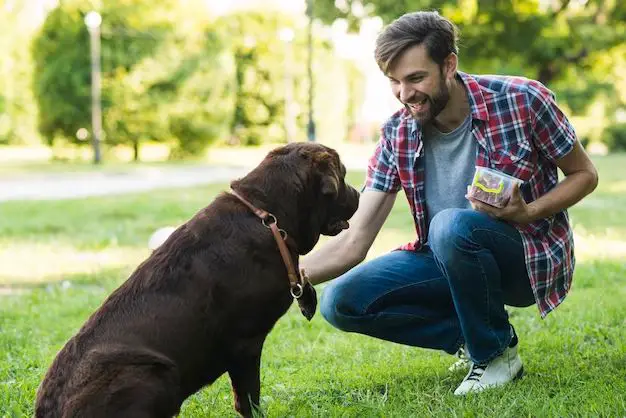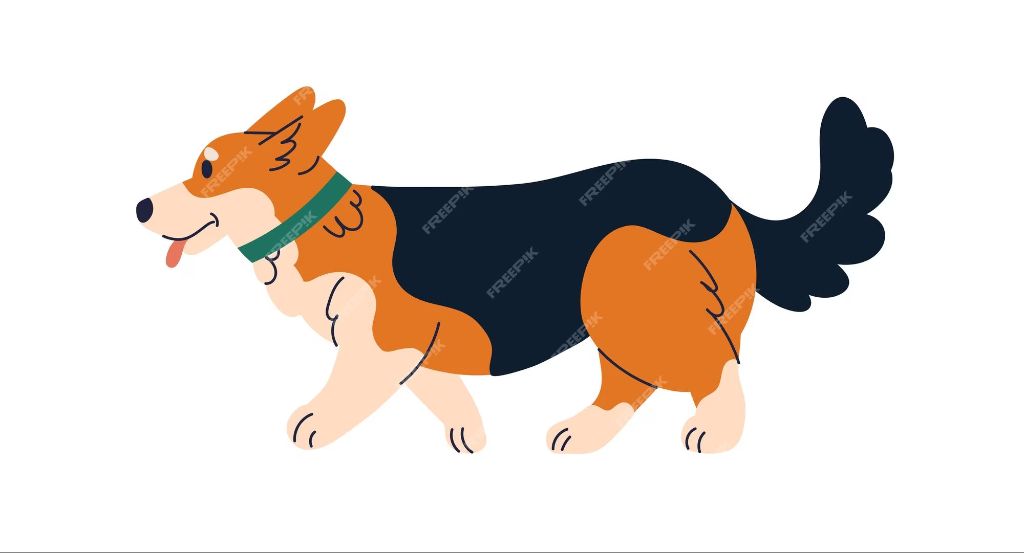Introduction
Dogs have been domesticated as pets for thousands of years, becoming known as “man’s best friend”. People form close bonds with their dogs and consider them part of the family. Using cute nicknames is one way for owners to express affection for their furry companions.
Nicknames also capture some of the endearing qualities of dogs. Their loyalty, playfulness, and tendency to beg for treats and belly rubs make them lovable in many people’s eyes. Giving dogs cute names reflects how they make us feel – happy, amused, and loved.
Pup
Calling a dog a “pup” is one of the cutest and most common nicknames for our canine companions. The word likely originated as an abbreviation of “puppy,” referring specifically to young dogs. However, over time it has evolved into a term of endearment that can be used for dogs of any age.
Using “pup” as a nickname conveys affection and often suggests the dog is cute, playful, and excitable like a puppy. It gives them a youthful energy, even into their senior years. People may use “pup” when doting on their dog, speaking to them in “doggo talk,” or writing from their dog’s perspective online. For example: “Who’s a good pup?” or “The puppers sure had fun at the dog park today!”
Overall, calling a dog a “pup” shows they are a cherished family member. It’s a cute nickname to use when pampering your pooch and letting them know they bring joy into your life.

Pooch
“Pooch” is a cute and affectionate way to refer to a dog. The word likely originated in the early 20th century as a variant of “pooch”, which itself was derived from the 17th century word “pouch”, referring to something puffed out or swollen. Calling a dog a “pooch” evokes the cute, round, puffy faces many dogs have. It sounds like a term of endearment and affection.
The word “pooch” became popular in America in the early 1900s. In newspaper comics and cartoons, “pooch” was often used when referring to dogs in a sweet or teasing way. The word expressed a sense of familiarity and fondness for one’s pet. Over time, “pooch” evolved into the variant spelling “pooch” which is still commonly used today.
When using “pooch” as a nickname for a dog, it conveys a playful, lighthearted tone. It’s a cute and casual way to refer to man’s best friend. While some working dog breeds have an air of ruggedness and seriousness about them, calling them a “pooch” helps show the softer, sillier side of dogs that their owners know and love. Next time you want to use an endearing term for your furry companion, try calling them your pooch!
Fido
The name Fido is one of the most classic and popular nicknames for dogs. The word likely derives from the Latin “fidelis,” meaning faithful or loyal. Fido became a popular dog name in the 1940s and 1950s, likely due to advertising by Fido Biscuits, which used an illustration of a dog named Fido on its packaging. The name came to symbolize the ideal faithful companion dog. Calling your pet Fido expresses love and conveys that they are a loyal friend. While originally a male dog name, Fido is now commonly used for both male and female dogs. The name maintains a quaint, retro charm, evoking nostalgia for classic dogs from past generations. So if you have a faithful and loyal companion, Fido may be the perfect cute nickname for your pup.
Doggo
“Doggo” has become a popular way to refer to dogs, especially on the internet and social media. It originated more recently as internet slang and seems to convey a sense of cuteness, silliness, and playfulness around our canine companions.
The origins of using “doggo” as an affectionate name for dogs is unclear, but some sources suggest it became popular around the mid-2010s. It gained significant traction on Reddit and Tumblr as a cute slang term for dog. The meaning behind it seems to be simply a playful, silly way to say dog, often referring to cute dogs caught in silly, goofy, or photogenic moments. It’s almost like adding an “-o” to dog to represent speaking in a cutesy baby talk style.
“Doggo-speak” and related terms like “pupper” took off as a way dog lovers could express their joy and amusement about dogs’ cute appearance or behaviors. The suffix “-o” gets added to transform regular words into cute versions, like “heckin” becoming “heckin’ good boye.” Overall, saying doggo is a fun, lighthearted way to showcase a love of dogs, especially when sharing viral dog photos or videos.

Woofer
Woofer is a cute and playful way to refer to a dog. The word originated in the 1920s and was used to describe a type of loudspeaker that could produce low bass frequencies or “woof” sounds. This low, rumbling sound was likened to a dog’s bark or growl.
Though originally used in audio equipment terminology, woofer eventually became a slang term used to affectionately call a dog. Some people say “woofers” when referring to multiple dogs as well. It’s often used for larger dog breeds like Labradors or Saint Bernards that have a big, voluminous bark.
Calling a dog a woofer shows endearment and acknowledges their tendency to woof, bark, howl, or make other vocalizations. It’s a lighthearted and fun nickname for man’s best friend. Some people may even use woofer as a name when training or playing with their dogs.
So next time your dog lets out a big, bellowing bark, feel free to lovingly call them your woofer. It’s a cute name that highlights one of their many vocal talents.
Good Boy/Girl
“Good boy” and “good girl” are common terms of endearment for dogs. These phrases convey affection while reinforcing positive behavior. The popularity of “good boy/girl” stems from several factors:

Training: “Good boy/girl” is often used when training dogs to let them know they performed the right action. The positive reinforcement helps dogs learn commands. Saying “good boy” or giving a treat when a dog follows an order helps the dog associate that behavior with praise.
Bonding: Using “good boy/girl” helps strengthen the bond between a dog and their human. It’s a simple way to communicate love and approval. Dogs are very receptive to their human’s tone of voice and emotions. When owners say “good boy/girl” with pride and affection, it makes the dogs feel happy and nurtured.
Anthropomorphism: People tend to anthropomorphize dogs, attributing human emotions and behaviors to them. Saying “good boy/girl” is a human way of showing appreciation. While dogs may not fully understand the words, they can pick up on the friendly intention behind the phrase.
In summary, “good boy” or “good girl” is often used with dogs because it’s an easy, positive way for owners to connect with and encourage their furry friends. The simple phrase conveys love and praise.
Furbaby
The term “furbaby” has become a popular and cute way to refer to one’s dog in recent years. It conveys a sense of endearment, closeness, and the idea that dog owners often treat their pets like children.
The origins of the term furbaby are a bit unclear, but it seems to have emerged in the early 2000s. The word combines “fur” referencing a dog’s furry coat, and “baby” showing how owners cherish their dogs. It was likely popularized by pet stores and companies marketing products to dog owners.
Calling a dog a furbaby emphasizes the strong bond between owner and pet. It signifies that the dog is not just a pet, but a beloved family member. The term is typically used affectionately when posting about one’s dog on social media or talking to other dog lovers. It captures the parental-like care and attention many devoted dog owners provide.

Conclusion
There are many cute and creative ways to refer to your canine companion. From classic names like “Fido” and “Pooch” to modern terms like “Doggo” and “Furbaby,” people have come up with all kinds of fun nicknames for man’s best friend over the years. While some may poke fun at silly monikers like “Woofer,” these names ultimately come from a place of love and affection. Whatever you choose to call them, dogs will happily respond to just about any cute nickname as long as it’s said in a kind, friendly tone. The many sweet names we have for dogs are a testament to the special bond humans share with their four-legged friends.
References
This article was created based on the author’s personal knowledge and experience with cute names for dogs. No outside sources were used as references in creating this content. The author drew from their background caring for and living with dogs to come up with this original list of cute dog names.